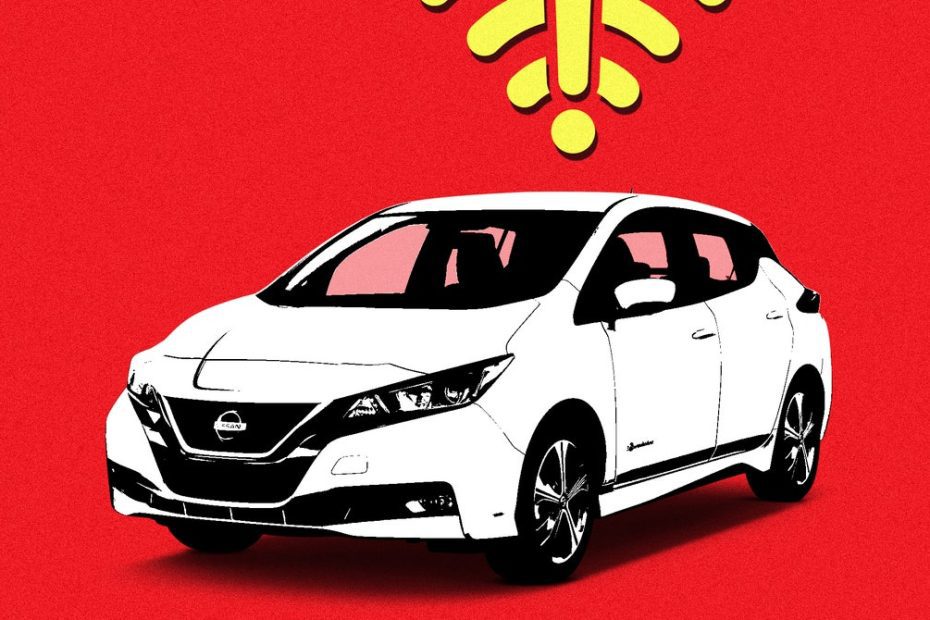This is a new problem for the auto industry. “One of the great things about cars is they tend to move much slower than consumer electronics,” says Phil Amsrud, an associate director of automotive at market research firm S&P Global Mobility. That gives automakers and suppliers plenty of time to figure out how to support their products and ensure that software stays up to date and works for at least 15 years. But “as we try to compress the auto industry’s time frame to be more like consumers, does 15 years get compressed into 10 years, five years?” Amsrud says.
Automakers love the idea of a software-defined vehicle because they can be an entry point into the low-margin, high-profit software business. A customer whose car can be updated anytime, anywhere can also be a customer who is willing to pay to update their car, whenever and wherever.
As a result, automakers can continue to sell new services and subscriptions — hands-free driving systems, perks like remote start and enhanced maps — to people who’ve already bought their cars, as long as those cars are on the road. Today, some car buyers pay additional monthly fees for these bundled services, including General Motors’ OnStar roadside assistance, Tesla’s Full-Self Driving (Supervised) and Mercedes’ Me Connect package. But the public has pushed back against other subscriptions, including a 2022 offering from BMW that would have charged South Korean drivers a monthly fee to turn on their heated seats. (The automaker eventually dropped the plan.)
Maximum headroom
The concept of “software-defined vehicles” requires automakers to build in “headroom,” or ensure that today’s automotive hardware can handle tomorrow’s new capabilities. The disappearance of connectivity standards—choices ultimately made by telecommunications companies, not automakers—shows that this is a difficult challenge for the future.
In a written statement, Volkswagen spokesman Mark Gillies said that “despite our best efforts, we have yet to find a solution that meets our reliability and safety standards for 3G vehicles.” He declined to comment further on solutions, citing ongoing litigation, but said the company believes 4G shutdowns won't occur until after 2035, “meaning the majority of our 4G vehicles will have the ability to connect for at least 10 years.”
Auto industry experts say the industry hasn’t made any significant commitments about how long it plans to keep updating its newer, software-enabled vehicles. And if vehicles lose the ability to be updated before they’re scrapped, “whoever’s footing the bill is going to take a big hit in resale value,” says Philip Koopman, who studies transportation software and safety as an associate professor at Carnegie Mellon University.
Ray Cornyn is senior vice president and general manager of automotive processors at NXP, a Dutch company that is one of the auto industry’s most popular suppliers. He predicts that the future of automotive software will look a lot like the present. “Vehicles are defined and designed for a lifespan of 10 to 15 years,” he says, with support from suppliers like NXP extending beyond the 15-year mark. But the bulk of updates will occur in years five to 10.
EV company Rivian bills itself as a software-forward company. Software chief Wassym Bensaid says the solution to obsolescence is conceptually simple: The automaker is talking to its suppliers about when the hardware can no longer be updated. “Today, we estimate the space that we have planned in our hardware with what we consider best practices in the software world is seven years,” Bensaid says. While that equates to the lifespan of smartphones, in practice this could mean that Rivian trucks and SUVs sold today would only get new software updates until 2031. Drivers might not be left out in the cold, however; the company could continue to support existing software beyond the seven-year mark.
But despite this being perhaps the most concrete commitment an automaker has ever made about updates, experts are still skeptical and want automakers to be clearer about when and how they plan to update their vehicles.
“Whatever anyone claims now will eventually have to be proven,” said Stacey Higginbotham, a policy fellow at Consumer Reports.
Update, July 25, 6:00 p.m.: This story has been updated to clarify Rivian's software support plans.

